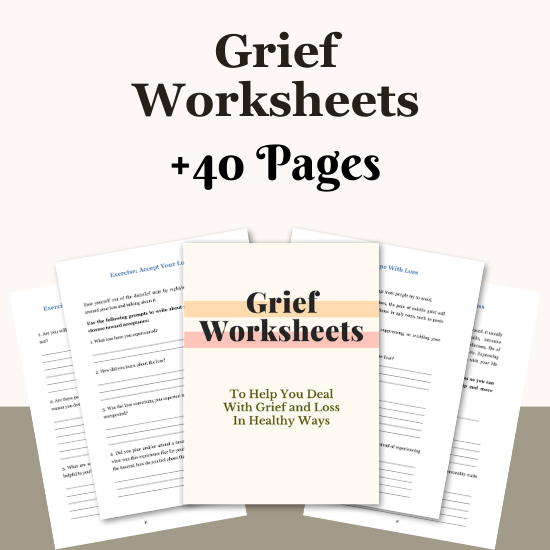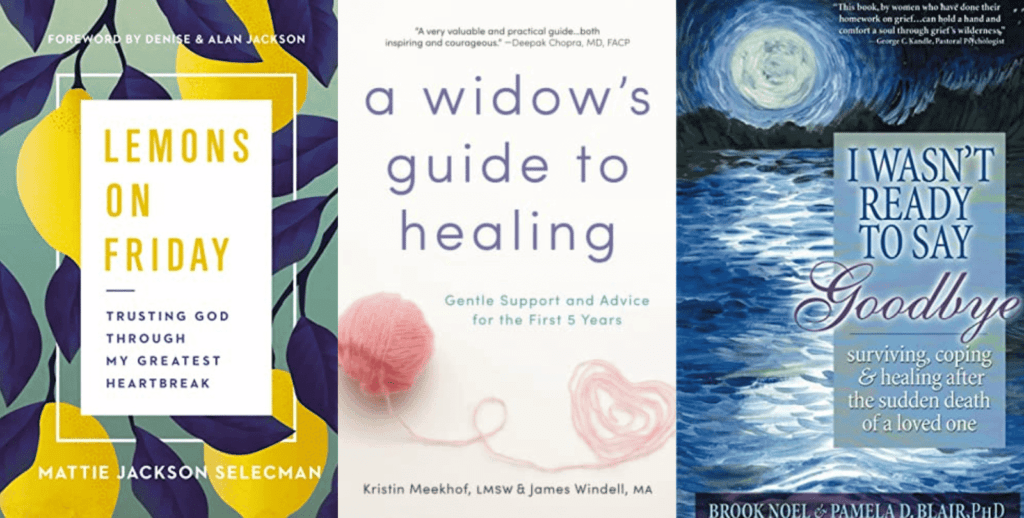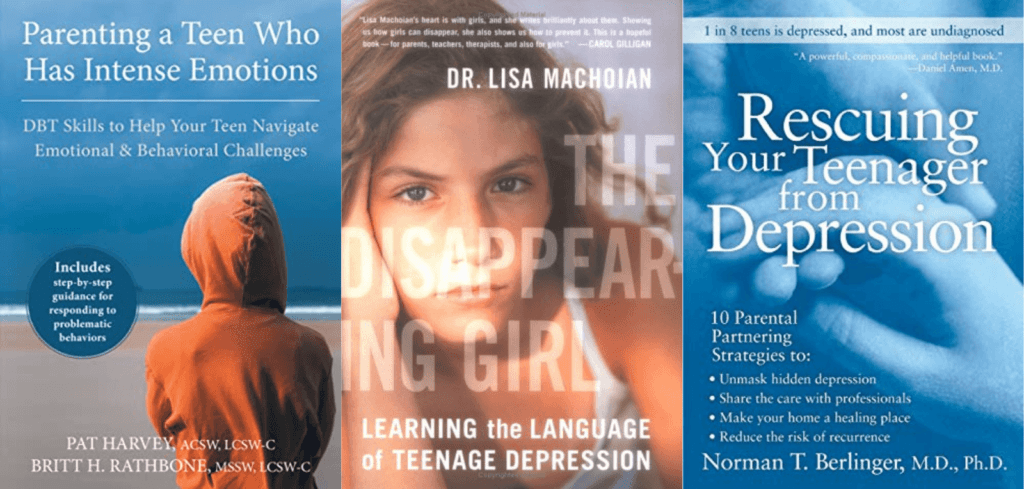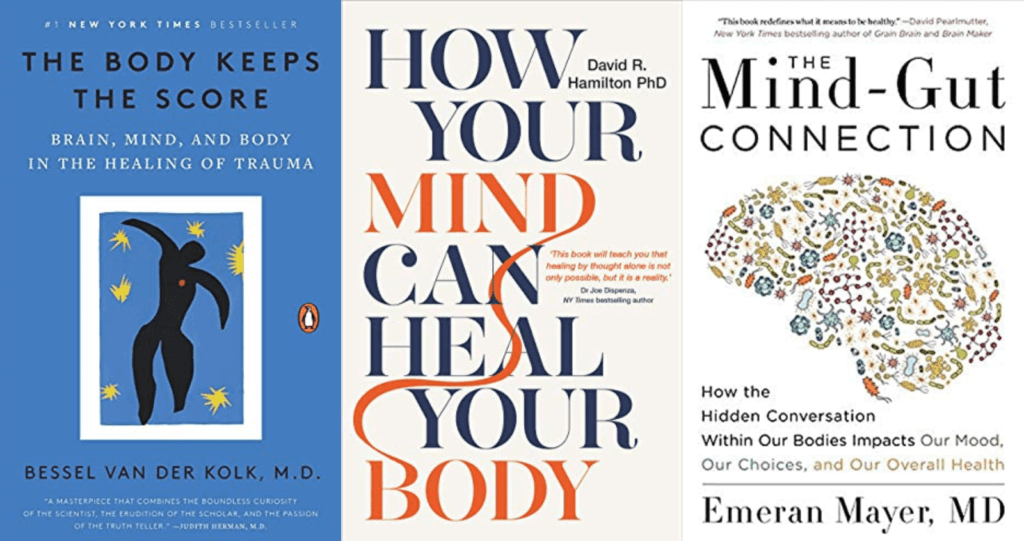The following are some of the best grief books for widows to help you on your grief journey.
Disclosure: Some of the links below are affiliate links. This means that, at zero cost to you, I will earn an affiliate commission if you click through the link and finalize a purchase.
Best Grief Books For Widows

1. I Wasn’t Ready to Say Goodbye
By Brook Noel, Pamela D Blair PhD
Whether you’re grieving the sudden loss of a loved one or helping someone else through their grief, I Wasn’t Ready to Say Goodbye offers a comforting hand to help guide you through the grieving process, from the first few weeks to the longer-term emotional and physical effects. It then reveals some of the myths of the grieving process and what really happens as you navigate through the pain.
Top-rated within grief books, topics include:
- Grieving the loss of a child, partner, parent, sibling, friend, or pet
- The physical and emotional effects of grief
- Navigating difficult days such as holidays, anniversaries, and birthdays
- Helping children cope with grief
- Understanding the grief recovery process
Related: Best 21 Grief Journaling Prompts (+FREE Grief Worksheets PDF)

2. Comfort for the Grieving Spouse’s Heart
By Gary Roe
In Comfort for the Grieving Spouse’s Heart, you will discover how to…
- Process complicated grief emotions (sadness, anger, guilt, confusion, guilt, anxiety, depression, feeling overwhelmed, etc).
- Navigate all the relational changes – feeling alone, misunderstood, isolated, and even rejected by those around you.
- Handle the increased stress and uncertainty that this heavy loss can bring. * Deal with physical and mental health issues, illnesses, and new symptoms that often arise.
- Take care of yourself through diet, hydration, fitness, and rest.
- Deal with a myriad of practical issues (financial challenges, parenting, family activities).
- Handle the intense, deep loneliness that often comes with this loss.
Related: Best +30 Grief Activities For Adults (+FREE Worksheets PDF)

3. A Widow’s Journey
By Gayle Roper
Have you recently lost your husband? Are there days when you feel so terribly alone—and that no one else could possibly understand? Is there only you? Then join Gayle as she draws on her emotions during the loss of her beloved husband, Chuck, and offers you a compassionate devotional to encourage you through your darkest days. Gayle knows a widow’s pain is deep. But she also knows God’s love is deeper still. And it’s in His love you’ll find your deepest comfort.
Related: Grief Comes In Waves: Top 12 Lessons From Grief No One Talks About

4. The Widow’s Journal
By Carrie P. Freeman PhD
This award-winning guided journal is designed to be a useful, caring gift for those whose husband, wife, or life partner has died within the last year. Losing a spouse causes a special kind of heartbreak, loneliness, and devastation. Your future plans have irrevocably changed, and your partner isn’t there to help you adapt to this new chapter of life.
Related: How To Help A Grieving Parent? (+FREE Worksheets For Grief)

5. It’s OK That You’re Not OK
By Megan Devine
In It’s OK That You’re Not OK, Megan Devine offers a profound new approach to both the experience of grief and the way we try to help others who have endured tragedy. Having experienced grief from both sides―as both a therapist and as a woman who witnessed the accidental drowning of her beloved partner―Megan writes with deep insight about the unspoken truths of loss, love, and healing. She debunks the culturally prescribed goal of returning to a normal, “happy” life, replacing it with a far healthier middle path, one that invites us to build a life alongside grief rather than seeking to overcome it.
Related: ACT For Grief and Loss: 6 Powerful Tools and Worksheets to Help You Move Forward with Grief – Acceptance and Commitment Therapy (ACT)

6. Healing a Spouse’s Grieving Heart
By Alan D Wolfelt PhD
Bereaved spouses will find advice on when and how to dispose of their mate’s belongings, dealing with their children, and redefining their role with friends and family. Suggestions are provided for elderly mourners, young widows and widowers, unmarried lovers, and same-sex partners. The information and comfort offered apply to individuals whose spouse died recently or long ago.
Related: Suicide Grief Stages – How Are They Different? (+10-Step Guide To Grieve Suicide Loss)

7. A Widow’s Guide to Healing
By Kristin Meekhof, James Windell M.A.
This inspiring book on widowhood shows grieving widows what to expect in those difficult first five years, and how to deal with the challenges of expectantly losing a life partner, including:
- Finances, estates, and medical bills
- Single parenthood
- Being a widow in the workplace
- Navigating social situations by yourself
Related: Resilient Grieving: Best 17 Ways To Manage Grief In The Workplace (+FREE Grief Worksheets)

8. On Grief and Grieving
By Elisabeth Kübler-Ross, David Kessler
Elisabeth Kübler-Ross’s On Death and Dying changed the way we talk about the end of life. Before her own death in 2004, she and David Kessler completed On Grief and Grieving, which looks at the way we experience the process of grief.
Just as On Death and Dying taught us the five stages of death—denial, anger, bargaining, depression, and acceptance—On Grief and Grieving applies these stages to the grieving process and weaves together theory, inspiration, and practical advice, including sections on sadness, hauntings, dreams, isolation, and healing.
Related: Grieving Someone Who Is Still Alive – Ambiguous Grief

9. Lemons on Friday
By Mattie Jackson Selecman
In Lemons on Friday, Mattie Jackson Selecman invites you to walk with her during the first years of grief following Ben’s tragic death as she grapples with her loss and leans on a steadfast God.
Mattie wrestles with questions that we’ve all faced in the midst of grief and loss, including:
- How did I get here?
- Will this always hurt?
- Who am I now?
- Where can I find the strength to keep going?
Related: Cumulative Grief: How To Cope With Bereavement Overload?

10. Grace for the Widow
By Joyce Rogers
Grace for the Widow is her firsthand account of how God holds a woman’s hand on this journey through the fog of loss. Her insights address both the profound and practical. Rogers recounts her grief in touching detail and how she called on the Lord and His promises from Scripture for strength. She also encourages readers with useful tips on staying healthy, keeping a positive attitude, reaching out to friends, and recognizing God’s continuing plan for those who have lost their husband.
Related: Grief Resources (FREE Worksheets, APPS, Podcasts, TED Talks, Books)

11. Life, Reconstructed
By Mph Teresa Amaral Beshwate
This book is written by a widow, for widowed people trying to navigate the darkness of losing a husband or wife. Many say that grieving the loss of your spouse takes time, but in truth, time, in and of itself, does not heal. What does heal is:
- Understanding that moving forward is not the same as “moving on.”
- Realizing that there is no requirement to leave your spouse in the past.
- Knowing that you don’t have to “get over it” but you can incorporate your loss.
- Learning how to carry your grief so that it isn’t a burden.
- Finding your way forward in a way that honors your late spouse.

12. The Suicide Club
By Alexandra Wyman
In The Suicide Club: What to Do When Someone You Love Chooses Death, Alexandra explores her journey of mourning and healing after losing her husband. She makes sense of her grief through three phases—Shock and Awe, Now What?, and Finding the Collateral Beauty—to offer a road back to peace and joy for anyone who has lost someone close to them to suicide.

Why Is Grief So Scary?
Grief can feel scary for several reasons. It’s important to remember that experiencing fear in the grieving process is normal and understandable. Here are a few reasons why grief may feel scary:
1. Loss of Control: Grief can make us feel like we’ve lost control over our emotions and our lives. The intense emotions and unpredictable nature of grief can be unsettling, causing anxiety and fear.
2. Uncertainty and Unknowns: Grief brings with it uncertainty about the future. When we lose someone, we may question what life will look like without them and how we will navigate through various aspects, such as practical matters, social roles, and personal identity.
3. Facing Mortality: Grief often confronts us with our own mortality and the fragility of life. This can trigger existential fears and provoke contemplation about the meaning and purpose of our own existence.
4. Emotional Pain: Grief involves experiencing intense emotional pain, which can be overwhelming and frightening. The fear of being consumed by emotions or feeling like the pain will never subside can contribute to the sense of fear.
5. Change and Adaptation: Grief requires us to adapt to a new reality without our loved one. This process can be daunting, as it involves adjusting to new roles, responsibilities, and routines, and it can feel overwhelming to face those changes alone.
6. Loneliness and Isolation: Grief can feel isolating, as we may feel like others don’t fully understand or aren’t able to support us adequately. The fear of being alone in our grief can intensify feelings of sadness and fear.
It’s essential to acknowledge these fears and provide yourself with self-compassion and support during the grieving process.
Seek support from understanding friends, family, or professionals who can help you navigate through your fears and provide guidance on dealing with grief’s challenges.
How Do I Know If I Am Grieving Properly?
There is no one-size-fits-all approach to grieving, and there is no definitive “proper” way to grieve.
Grief is a deeply personal experience, and each person’s journey through it is unique.
However, there are some general indicators that can help you gauge whether you are coping in a healthy manner.
Here are a few signs that you may be grieving in a constructive way:
1. Allowing yourself to feel: Grief involves a range of emotions, including sadness, anger, guilt, and confusion. It is important to give yourself permission to experience these emotions without judgment or suppression. Allowing yourself to feel and express them in a safe and healthy manner can be a positive sign.
2. Engaging in self-care: Taking care of yourself physically, emotionally, and mentally is crucial during the grieving process. This includes maintaining a balanced diet, getting regular exercise, getting enough sleep, and engaging in activities that bring you comfort and joy. Prioritizing self-care is an indication that you are actively working towards healing.
3. Seeking support: Acknowledging the need for support and reaching out to trusted friends, family members, or professionals for assistance is a healthy response to grief. Don’t hesitate to seek therapy or join support groups where you can find solace in sharing your thoughts and feelings with others who have experienced similar loss.
4. Gradual acceptance: Grieving involves coming to terms with the reality of the loss over time. While this does not mean forgetting or moving on completely, it signifies a gradual acceptance of the loss and finding ways to adjust to life without the person or thing you’ve lost.
Conclusion
Remember that everyone’s grief journey is different, and there is no right or wrong way to grieve.



